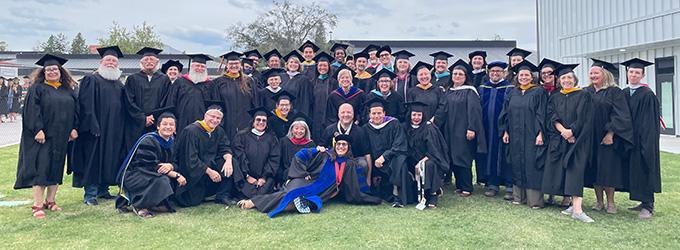SubMenu
Faculty Research Spotlights
 |
In August 2021, I received a national Fulbright-Hays Seminar Abroad to study African Heritage in Mexico. It was an interdisciplinary study that began with the story of slavery and abolition in New Spain/Colonial Mexico. The notion of "race" is different in Mexico, and it challenges our understanding rooted in white/black binary thinking in the U.S. Afomexicans or Afrodescendents in Mexico have experienced erasure, exploitation, and racism, however, there are several contemporary movements that demonstrate interest in learning lost culture and sharing the complexities of their unique identities. Art is an important discipline where this is taking place. I am studying this and using art as a way to understanding race construction in Mexico. |
| Sara Small House Art History Faculty |
|
Rachel Artega, Tia Germar, & Jean Ping |
Libraries are supposed to be equitable, inclusive, and accessible to everyone. However, as institutions that share a long history, libraries cannot help but reflect the larger systemic issues in our country. In other words, we have inherited a collection of materials that may not adequately and accurately represent marginalized communities. Furthermore, these materials have been organized using a system steeped in colonialism. Though the library regularly engages in IDEA-related projects we wanted to perform a thorough evaluation of our collection with regards to IDEA. Specifically, collections need to be assessed with an eye towards how historically marginalized groups are both represented in and and absent from the collection. Recognizing the need to evaluate our materials, the library has started this process. After taking a class on evaluating, auditing, and diversifying our collection, Tia Germar, Jean Ping, and Rachel Arteaga developed a process to improve the library's collection. Our process analyzes data from our collection, assesses for gaps, and improves catalog descriptions. We would like to improve the numbers of materials representative of and written by people from marginalized communities. It will take time to analyze our 70,000+ book collection. Our older titles need a close assessment. And though an initial evaluation indicates that we have been doing well with recent additions to the collection, our new system will automatically factor in IDEA elements into the ordering process. Students need to see themselves reflected in the materials available to them. For some of our students, library materials may be the only resources available to access accurate information about people different from themselves. So not only should students be able to easily find these materials, but the system through which these materials are found should not further perpetuate biases and systemic issues. |
 |
I am a Co-PI in a 2-year research study in collaboration with Shannamar Dewey (PI of study), 2 Chico State professors, and a UC Davis professor. The study is funded by CA Governor's Office of Planning and Research, the CA Education Learning Lab (CELL). The aim of the study is to teach Intro Biology students (currently Human Anatomy) students the neurobiology of memory formation and scientifically backed study strategies that are designed from this neurobiology to improve course completion and achievement outcomes for minoritized students. |
| Jill Terra Faculty Biology |
Content Editor:
Tray Robinson
530-879-4106




